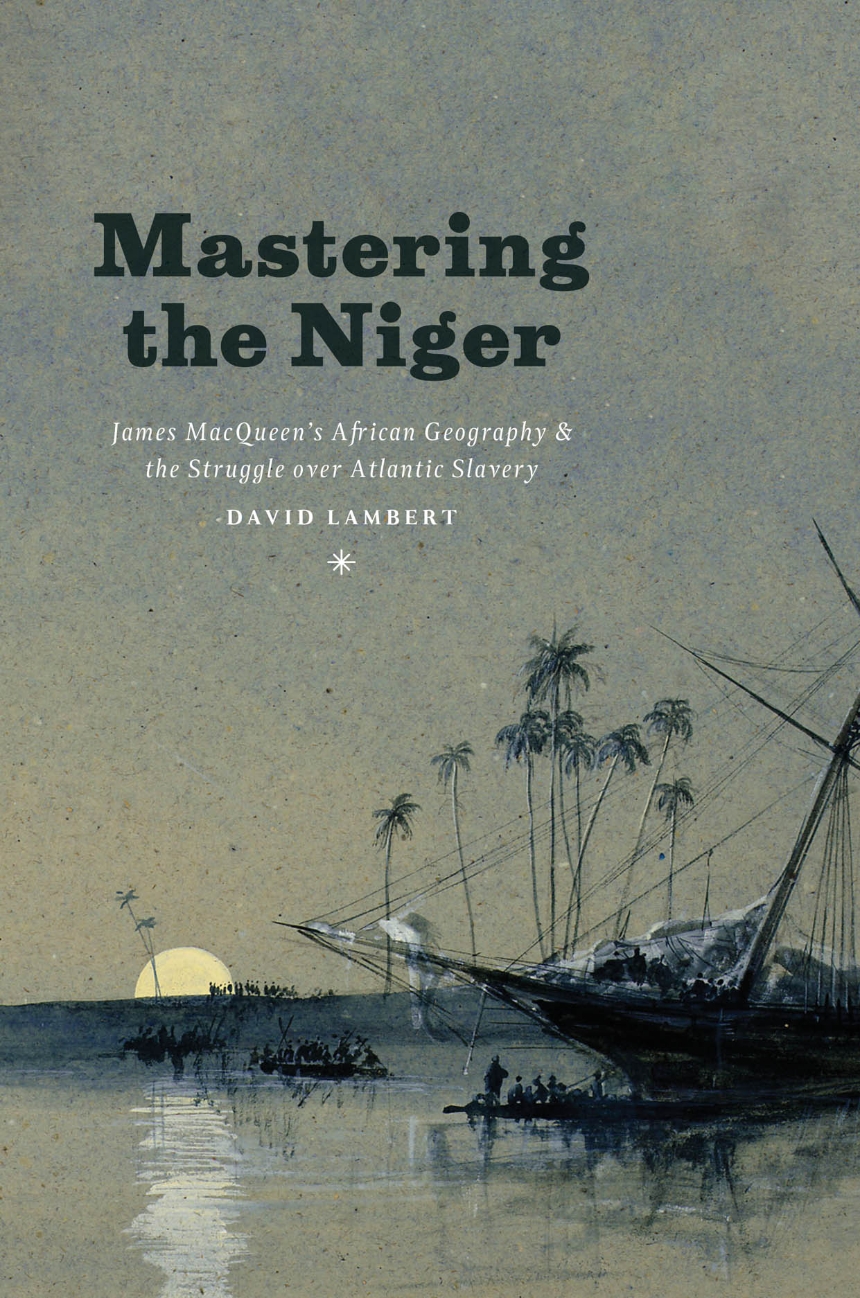Mastering the Niger
James MacQueen’s African Geography and the Struggle over Atlantic Slavery
9780226078069
9780226078236
Mastering the Niger
James MacQueen’s African Geography and the Struggle over Atlantic Slavery
In Mastering the Niger, David Lambert recalls Scotsman James MacQueen (1778–1870) and his publication of A New Map of Africa in 1841 to show that Atlantic slavery—as a practice of subjugation, a source of wealth, and a focus of political struggle—was entangled with the production, circulation, and reception of geographical knowledge. The British empire banned the slave trade in 1807 and abolished slavery itself in 1833, creating a need for a new British imperial economy. Without ever setting foot on the continent, MacQueen took on the task of solving the “Niger problem,” that is, to successfully map the course of the river and its tributaries, and thus breathe life into his scheme for the exploration, colonization, and commercial exploitation of West Africa.
Lambert illustrates how MacQueen’s geographical research began, four decades before the publication of the New Map, when he was managing a sugar estate on the West Indian colony of Grenada. There MacQueen encountered slaves with firsthand knowledge of West Africa, whose accounts would form the basis of his geographical claims. Lambert examines the inspirations and foundations for MacQueen’s geographical theory as well as its reception, arguing that Atlantic slavery and ideas for alternatives to it helped produce geographical knowledge, while geographical discourse informed the struggle over slavery.
320 pages | 28 halftones | 6 x 9 | © 2013
Geography: Cartography, Cultural and Historical Geography
History: African History, British and Irish History, Latin American History
Reviews
Table of Contents
List of Figures
Chapter 1 Mastering the Niger
Part 1: Sources
Chapter 2 “Mr. Park’s Book” and the Niger Problem
Chapter 3 Keeping Account of Atlantic Commerce
Chapter 4 Captive Knowledge
Part 2: Courses
Chapter 5 Credibility and Truth Making in the Atlantic World
Chapter 6 Surveying Sierra Leone
Chapter 7 Thomas Fowell Buxton and the Niger Expedition
Part 3: Termination
Chapter 8 Beyond the Niger
Acknowledgments
List of Abbreviations
Notes
Bibliography
Index